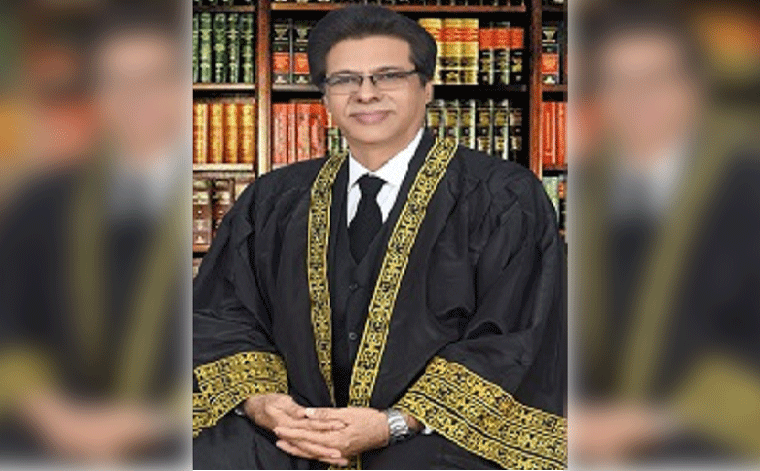ISLAMABAD: Justice Ayesha A. Malik of the Supreme Court has ruled that parliament lacks the legislative competence to make the Supreme Court (Practice and Procedure) Act 2023, rendering the act ultra vires of the Constitution.
In an additional note in the practice and procedure case, Justice Malik stated, “The rule-making power under Article 191 of the Constitution exclusively falls within the domain of the Supreme Court and is directly linked with the independence of the judiciary.”
In a split decision last year, a 15-judge full court of the Supreme Court had upheld the PDM coalition-made law to regulate the affairs of the top court, but with a caveat that the appeal provided against decisions taken under Article 184(3) would not be applicable with retrospective effect.
Now in a 32-page note, Justice Malik emphasised that the SC had already held that the independence of the judiciary was a fundamental right, and issues relating to independence, structure, and functioning of the judiciary were matters of public importance. The apex court also held that questions concerning the independence of the judiciary and access to justice would always be matters that concern the public at large.
Legislature encroached upon a core function of apex court, Justice Ayesha says in her additional note
Referring to the formation of the full court, she said the basic question remained unanswered as to what happened to the right of appeal under Section 5 of the Act since, with the sitting of all judges in a petition under Article 184(3) of the Constitution, the right of appeal granted under Section 5 of the Act became redundant. This meant that a party who could avail the right of appeal under the Act would no longer be able to avail that right since the full court heard the matter, she reasoned. “It goes without saying that the right of appeal is a substantive right and, in this case, a statutory right granted by the legislature for a very specific purpose which is to provide a remedy to a party in the face of a petition under Article 184(3), the order of which would attain finality,” Justice Malik observed.
Justice Malik said the statute granted a right of appeal which the SC could not deprive a party from. In doing so, the legislature had encroached upon a core function of the Supreme Court which is against the principles of independence of the judiciary and the separation of powers, she said.
Likewise, Justice Shahid Waheed, in his note, emphasised the importance of the courts’ independence and autonomy, stating that it was necessary for the courts to perform their functions in an atmosphere of independence, free from all kinds of interference from within or outside. The autonomy was not a matter of compromise, as it was the soul and inner strength of the SC, he said.
He added that the justice delivery system was the bedrock of the rule of law. In the absence of an independent, effective and efficient court system, it would not be possible to sustain the rule of law in the country, Justice Waheed said. Therefore, Article 175(3) mandated that the judiciary be separated from the executive.
In contrast, the effects of the Act lead to an irresistible conclusion that the act is a spanner in the free and efficient functioning of the Supreme Court, which is requisite to guard the Constitution. So, on this count, too, the act cannot sustain, he said.
Published in Dawn, May 8th, 2024















































Dear visitor, the comments section is undergoing an overhaul and will return soon.